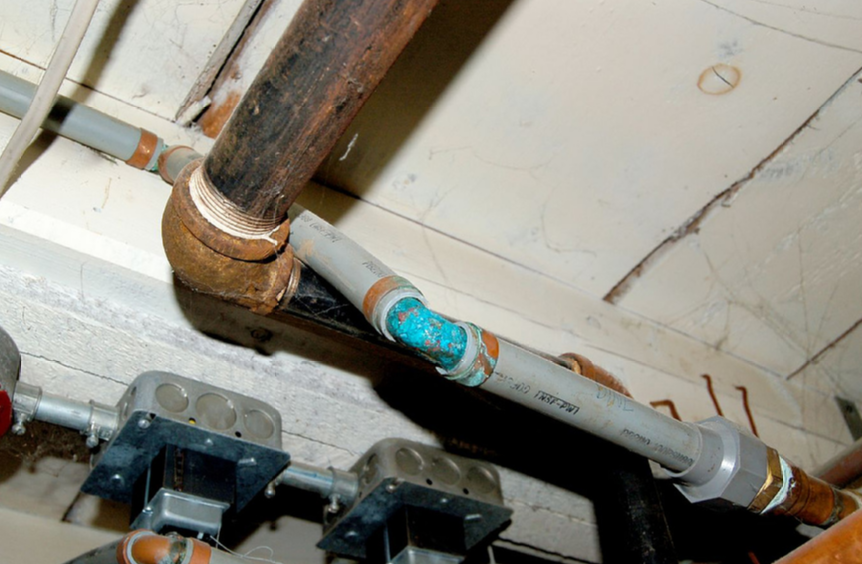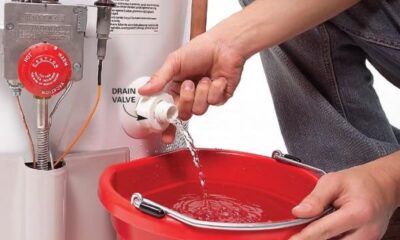Hey there, Cape Coral homeowners! If you live in a house built between 1978 and 1995, there’s a good chance you might have polybutylene plumbing. Don’t worry—we’re here to help you understand what that means and what you can do about it. Let’s dive in!
What Are Polybutylene Pipes?

So, polybutylene pipes are a type of plastic pipe that was super popular back in the day. Why? They were easy to install, flexible, resistant to temperature changes, and didn’t corrode like metal pipes. Plus, they were a lot cheaper than copper! Sounds pretty great, right?
But here’s the catch—despite these perks, polybutylene pipes have a big downside that led to their downfall.
Why Are Polybutylene Pipes No Longer Used?
Unfortunately, polybutylene pipes don’t play well with chlorine and other disinfectants in our water supply. Over time, these chemicals can cause the pipes to degrade, making them brittle and prone to cracking. This can lead to leaks and even bursts, which, as you can imagine, can cause a lot of damage.
Back in 1995, a class-action lawsuit revealed just how problematic these pipes were, leading to their removal from building codes in the U.S. and Canada. They haven’t been used in new construction since then.
Risks Associated with Polybutylene Plumbing
Still have polybutylene pipes in your home? Here’s what you’re up against:
- Water Damage: Leaks and bursts can lead to costly water damage and mold growth.
- Insurance Issues: Most insurance companies won’t cover damage from these pipes.
- Health Concerns: There’s some worry about microplastics and other potential health risks.
Identifying Polybutylene Pipes
Not sure if you have polybutylene pipes? Here’s how to spot them:
- Color: Look for light gray, blue, or black pipes.
- Markings: Check for the “PB2110” stamp or manufacturer names like Shell Chemical Company, Quest, or Vanguard.
- Location: You’ll often find them in water supply lines, not drain lines.
If you’re still unsure, it’s best to get a professional inspection.
What to Do if You Have Polybutylene Pipes
Found polybutylene pipes in your home? It’s time to think about replacement. You have two main options: partial replacement or a whole-home repipe. We usually recommend a full repipe for the best long-term solution.
Repiping Process and Considerations
Here’s a quick look at what repiping involves:
- Shutting off the Water: We’ll start by turning off your main water supply.
- Accessing the Pipes: This means cutting into walls to reach the old pipes.
- Removing Old Pipes: Out with the old, in with the new!
- Installing New Pipes: We use high-quality PEX or copper pipes.
- Testing and Repairs: We’ll make sure everything is working perfectly before patching up the walls.
The whole process usually takes one to two days, plus a few more days for drywall and paint repairs. You can stay in your home during the work, but we’ll need to turn off the water during the day.
Cost of Replacing Polybutylene Pipes
Now, let’s talk about money. Replacing polybutylene pipes can cost anywhere from $4,000 to $20,000, depending on factors like your home’s size, the number of bathrooms, and the materials used. While it’s an investment, it’s definitely worth it for peace of mind and increased home value.
Replacing Polybutylene Pipes
So there you have it! Polybutylene pipes might have been a good idea back in the day, but they’re a ticking time bomb now. If you’ve got them, it’s time to think about replacement. The team here at Next Plumbing in Cape Coral is ready to help you with expert repiping services.
Ready to Repipe? Next Plumbing Got Your Back!
Don’t wait for a plumbing disaster to strike—get your polybutylene pipes replaced today! Give Next Plumbing a call for a professional inspection and a free repiping estimate. We’re here to ensure your home’s plumbing is safe, reliable, and up-to-date. Call us now and let’s get started on making your home worry-free!
While you’re here, why not check out some of our other helpful blogs? Learn how to solve common garbage disposal problems in Tame the Grind: Solving Common Garbage Disposal Problems with Next Plumbing or get the lowdown on your hot water system’s safety with What You Need to Know About T&P Valves on Hot Water Heaters.



